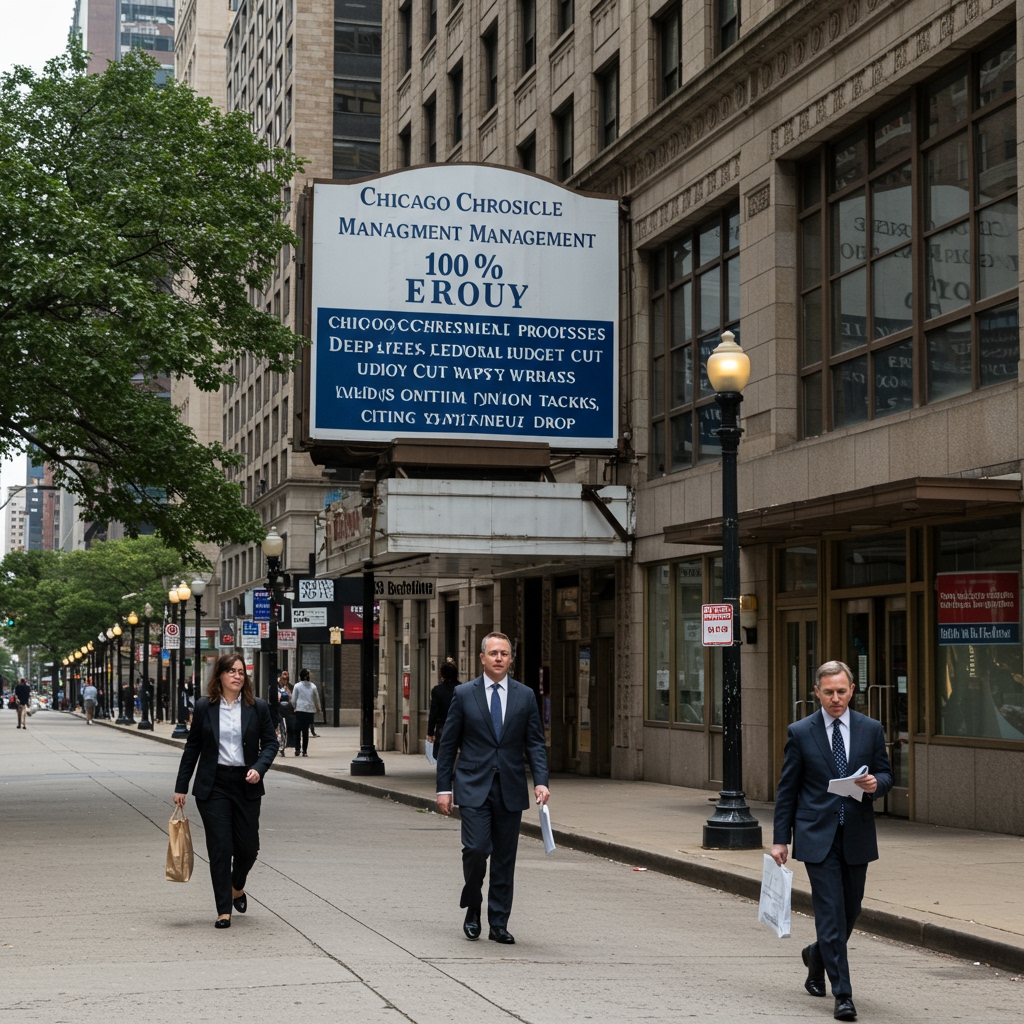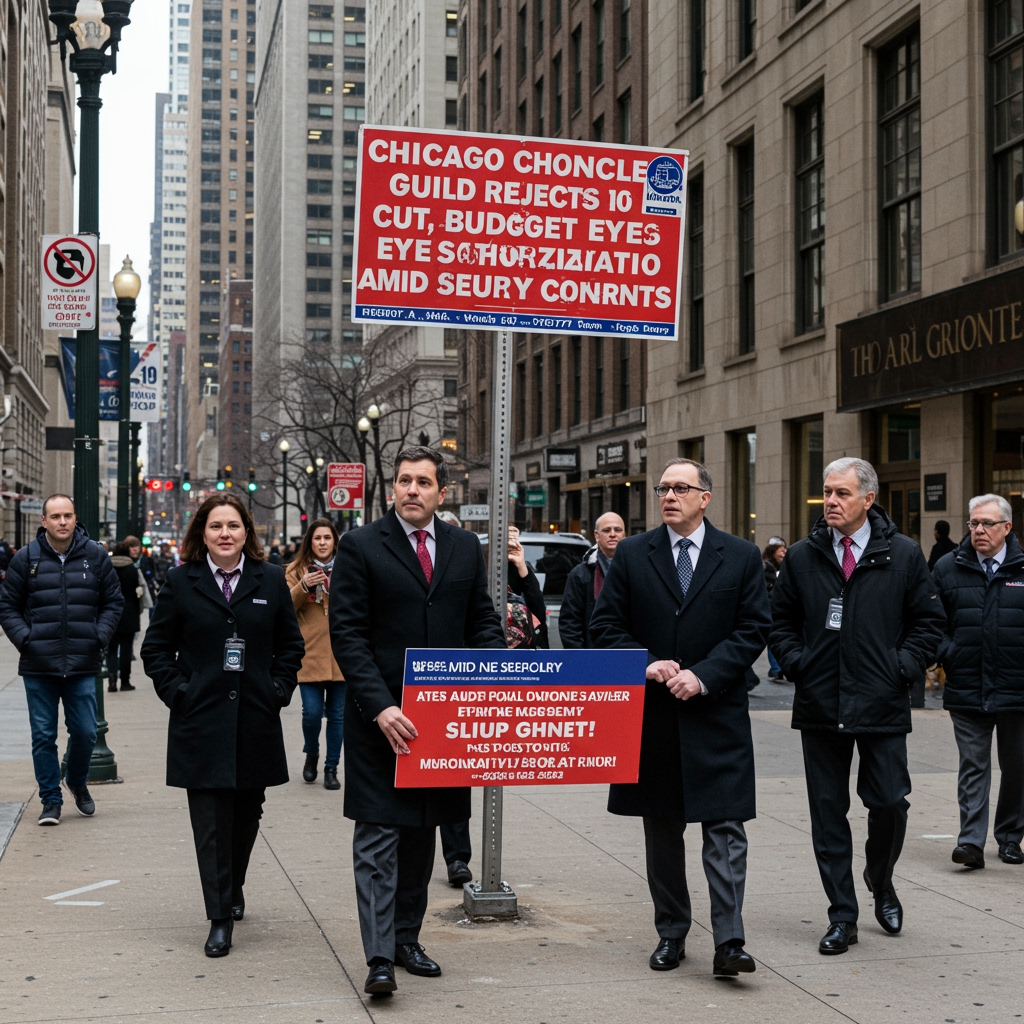CHICAGO — The Chicago Chronicle Guild, the union representing approximately 150 journalists and editorial staff at the prominent Chicago newspaper, has formally rejected a proposal from Chicago Chronicle management that called for a 10% reduction in the editorial budget. The union’s decision, announced on Thursday, April 24, 2025, signals a significant escalation in ongoing discussions regarding the financial future of the publication and the security of its newsroom staff.
Guild leadership expressed profound concerns that implementing such a substantial budget cut would inevitably lead to significant job losses among its members. They argue that reducing staffing levels and resources by 10% would not only devastate the livelihoods of dedicated professionals but would also severely compromise the quality, depth, and breadth of local news coverage provided to the Chicago community. The union contends that a diminished newsroom would struggle to adequately cover essential beats, conduct in-depth investigations, and maintain the high journalistic standards expected by the public.
Sarah Chen, President of the Chicago Chronicle Guild, was unequivocal in the union’s stance following the rejection. She stated that the proposed cuts were simply “unacceptable” and failed to acknowledge the vital role the editorial staff plays in the Chronicle’s operation and its connection to the community it serves. The Guild maintains that the newsroom is not merely a cost center but the core engine driving the publication’s value and readership.
In the wake of the formal rejection, the Chicago Chronicle Guild has taken a decisive step towards potential collective action. The union has initiated a polling process among its membership to gauge support for authorizing a strike vote. This poll is a critical preliminary step, seeking members’ permission for the leadership to call for a full strike vote if circumstances warrant.
The timeline for this potential action is immediate. According to the Guild, if Chicago Chronicle management does not withdraw its proposal for the 10% editorial budget reduction and signal a willingness to return to the negotiating table, the process for a full strike authorization vote could commence as early as the week of April 28th. This rapid progression highlights the urgency and seriousness with which the Guild views management’s proposed cuts.
The union’s demand is clear: withdrawal of the current budget reduction plan and a return to negotiations focused on alternative strategies. The Guild is urging management to explore solutions centered on revenue generation – finding new income streams or expanding existing ones – rather than relying solely on cost-cutting measures that directly impact the newsroom workforce and output. They also indicated a willingness to discuss less drastic cost-saving measures that would avoid mass layoffs and preserve the essential functions of the editorial department.
The potential for a strike authorization vote introduces a new layer of tension into the relationship between the Guild and management. While an authorization vote does not automatically trigger a strike, it grants the union leadership the power to call for one if negotiations break down completely. Such a vote requires significant support from the membership, demonstrating a collective willingness to withhold labor as a means of achieving a favorable resolution.
The Chicago Chronicle Guild has consistently advocated for the value of local journalism and the need to invest in newsgathering operations, even in a challenging media landscape. They view the proposed 10% cut as contrary to the long-term health and relevance of the newspaper. The union argues that reducing the editorial capacity risks alienating readers and further eroding the publication’s standing in the community, ultimately harming its financial viability in the long run.
The outcome of the member poll and management’s response in the coming days will be closely watched. A decision by management to persist with the proposed budget cuts despite the Guild’s strong opposition and potential for strike action could lead to significant disruption at the Chicago Chronicle. Conversely, a willingness to engage in good-faith negotiations and explore alternatives could potentially avert a labor dispute and pave the way for a more collaborative approach to the newspaper’s financial challenges. As of April 24, 2025, the situation remains fluid, with the Guild having clearly articulated its boundaries and next steps.















